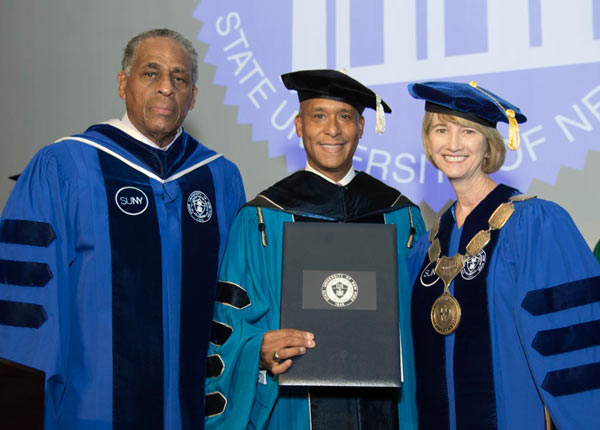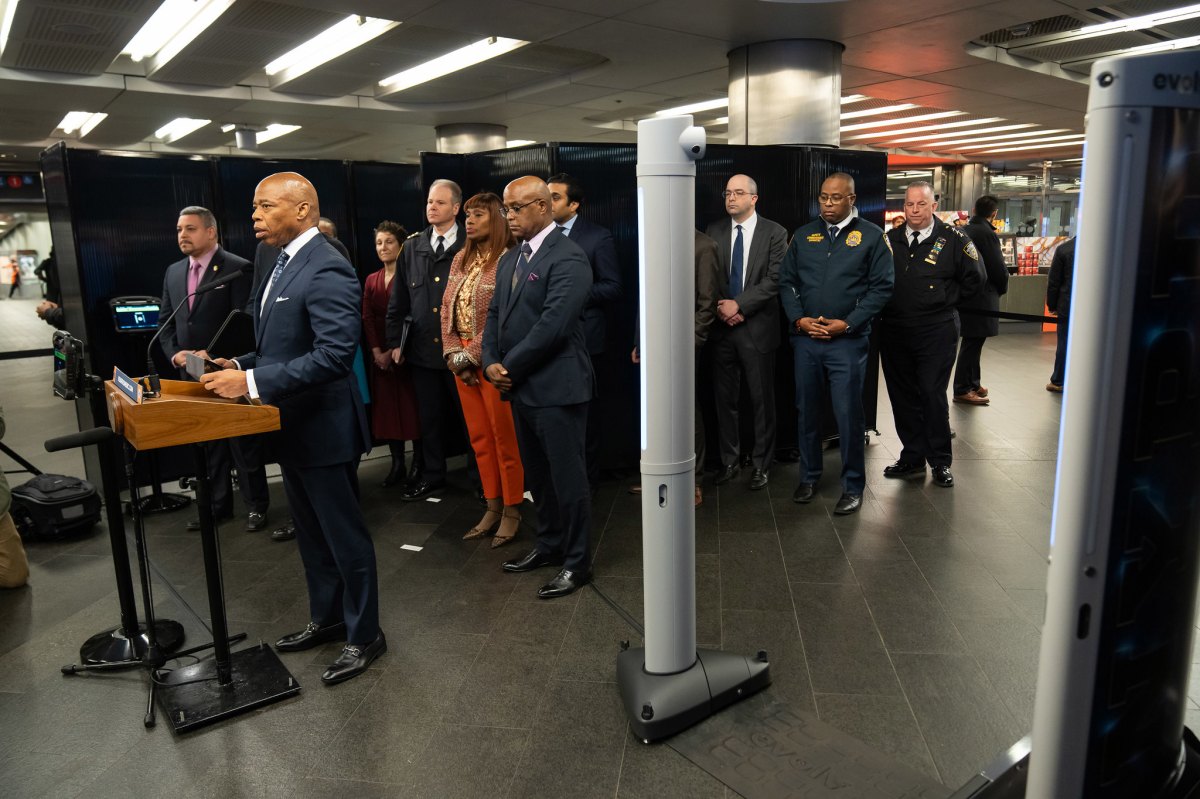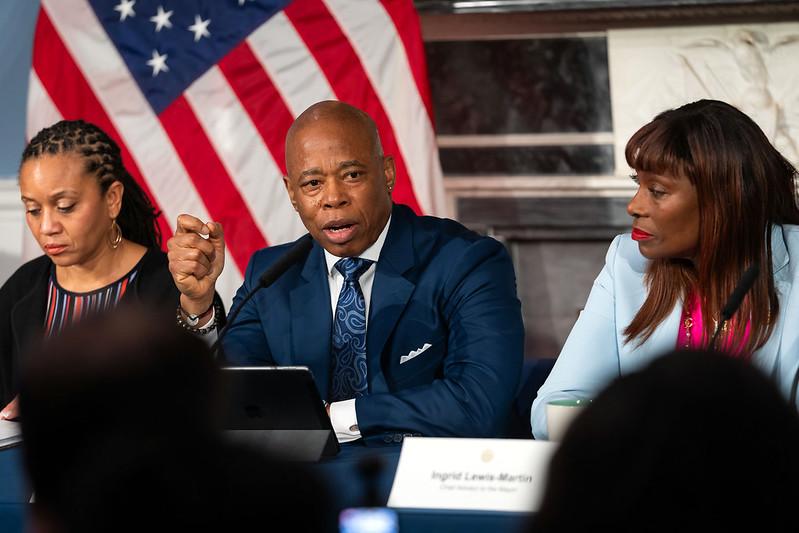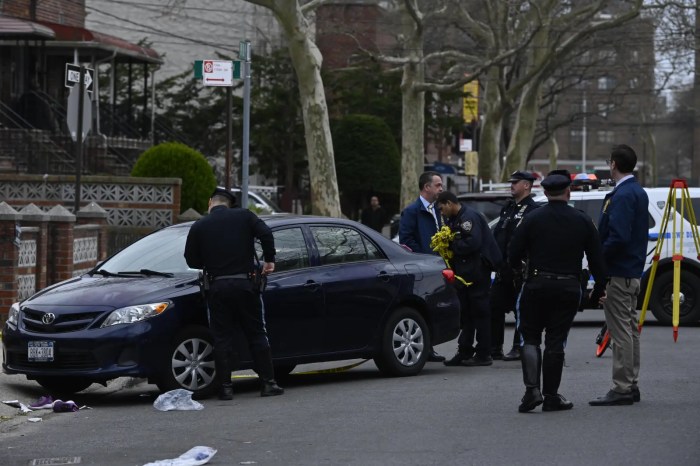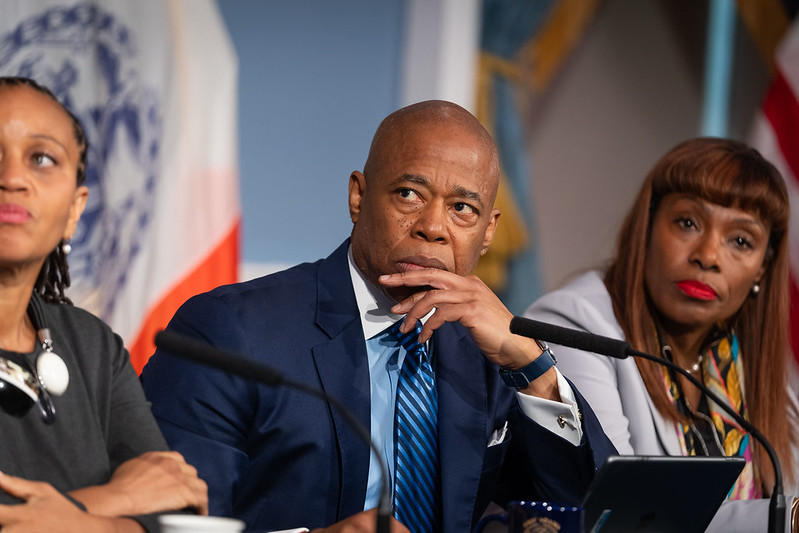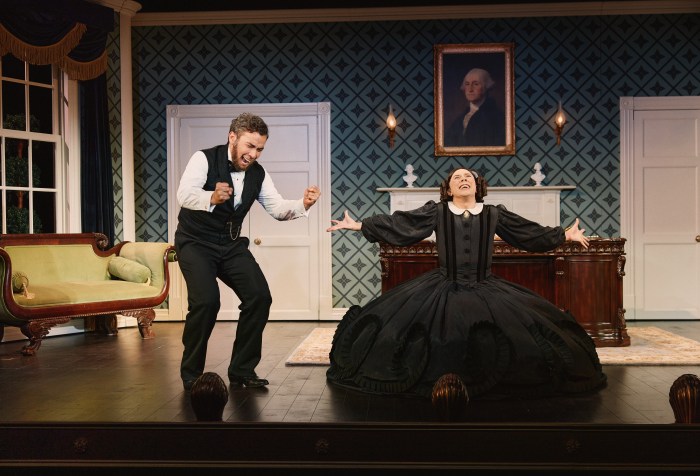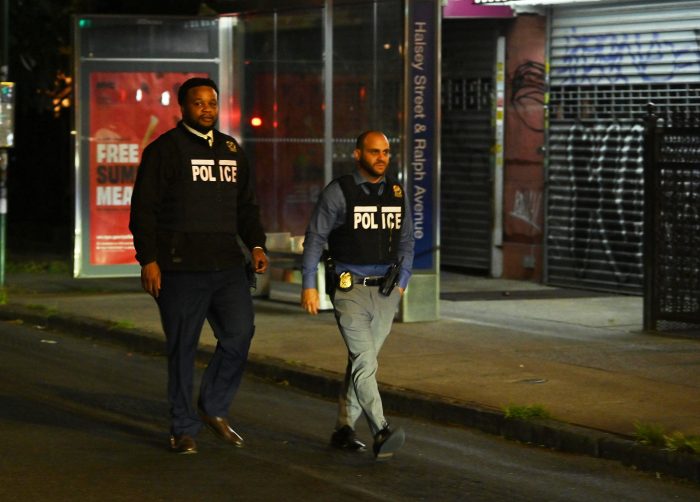Prospect Lefferts Garden
Three cheers to Dr. Wayne Riley, who has been inaugurated as the 17th president of the State University of New York Medical Center.
“SUNY Downstate is the academic health science center of the American Dream. My vision going forward is for us to strengthen our ties to the community and I will do everything I can to spread the word about the greatness of this institution,” said Riley, adding, “At the end of the day, it’s not just about getting the degree — it’s how you use your degree to change and impact your community. I want to thank Chairman Carl McCall, Chancellor Kristina Johnson, and the SUNY Board of Trustees for this opportunity.”
“We have been so pleased to see the rapid pace with which President Riley is immersing himself into the Downstate Medical and Brooklyn community,” said H. Carl McCall, chairman of the board.
Chancellor Johnson added her salutations, and said, “President Riley is committed to ensuring that future medical professionals are encouraged, challenged, and supported during such critical years in their academic growth.”
Elected official Congresswoman Yvette Clarke (D–Prospect Letters Gardens) weighed in on his appointment and said, “On behalf of the people of the Ninth Congressional District of New York, I am honored to welcome Dr. Riley to Brooklyn. I am certain that we will have many opportunities to work with each other to improve the quality of health for every family we proudly serve.”
Prior to joining SUNY Downstate in April of this year, Dr. Riley served as clinical professor of medicine and adjunct professor of healthcare management and health policy at Vanderbilt University, and before that, as president and chief executive officer and professor of medicine at Meharry Medical College. He is also president emeritus of the American College of Physicians — the nation’s largest medical specialty society representing internal medicine and other subspecialties.
Standing O says, “Welcome aboard.”
State University of New York Medical Center [450 Clarkson Ave. at New York Avenue in Prospect Lefferts Gardens; (718) 270–1000].
Sunset Park
Better care and outcome!
Thanks and kudos to NYU Langone Hospital–Brooklyn for providing high-quality healthcare with measurable outcomes to the borough’s underserved populations.
Working with primary care providers and community organizations, the hospital is midway through a five-year, federally funded demonstration project called Delivery System Reform Incentive Payment. The initiative is sponsored by the U.S. Centers for Medicare and Medicaid and administered by the New York State Department of Health. It began in April 2015 and is set to conclude in 2020.
The hospital participates as NYU Langone Brooklyn Performing Provider System, which includes the Family Health Centers at NYU Langone and more than 200 primary care and mental health providers, social service organizations, nursing homes, pharmacies, and other community-based organizations.
“We work with community groups who know the patients and are trusted by them,” says Alessandra Taverna-Trani, director of the system.
The projects, designed to address specific needs are:
System transformation: developing an integrated care-delivery system including three Emergency Department-related initiatives.
Clinical improvement: focusing on improving behavioral health, and asthma and diabetes management.
Population health: working on HIV education and prevention, and reduction of tobacco use.
“The program has an overarching goal of reducing avoidable admission to the hospital and the emergency department by 25 percent,” says Larry McReynolds, executive director of Family Health Centers at NYU Langone and executive sponsor of the NYU Langone Brooklyn PPS. Adding, “We’ve reduced potentially preventable ED readmissions by more than four percent above statewide projections and we achieved a 20 percent reduction in behavioral health-related admissions.”
Emergency rooms often serve as a main source of healthcare for underserved populations without access to primary care. In the Emergency Department, patients are assessed and stabilized by a multidisciplinary team including doctors, physician assistants, and nurses.
“As we face the prospect of a value-based payment system, which shifts financial risk to hospitals, such tools will facilitate ongoing monitoring of performance in delivering high quality patient care,” said McReynolds.
NYU Langone Hospital–Brooklyn [150 55th St. at First Avenue in Sunset Park; (718) 630–7000].


